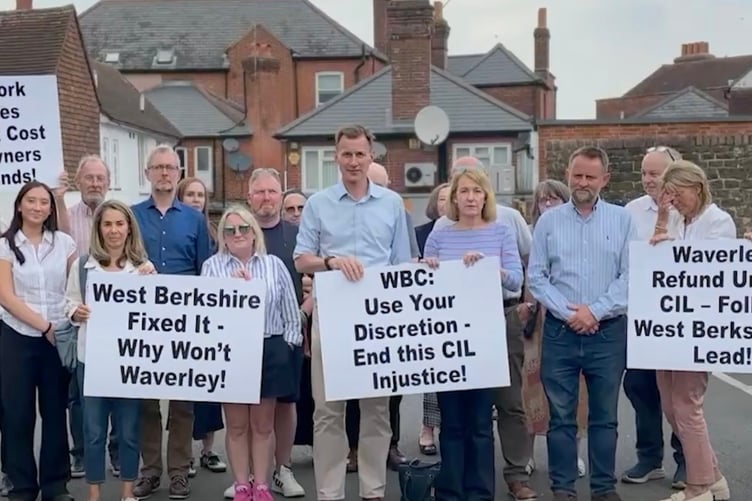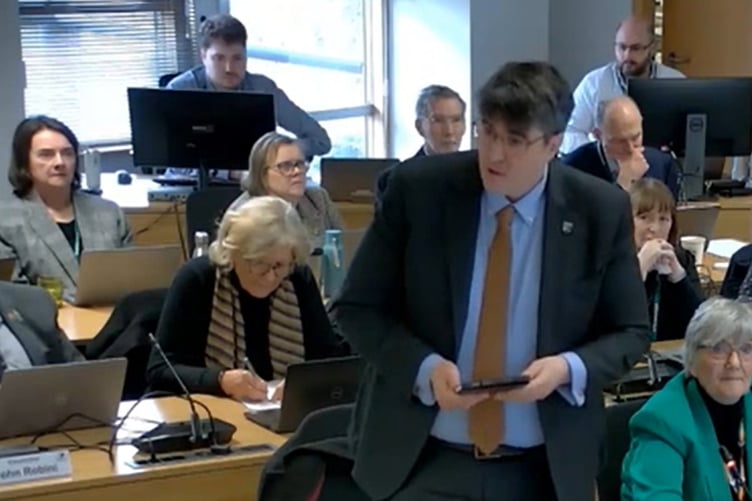Waverley Borough Council has warned it is powerless to protect residents from harsh Community Infrastructure Levy (CIL) charges, even when homeowners make honest mistakes.
The leader of the council, Cllr Paul Follows, is now calling on the Government to urgently reform the system.
In a letter to the Secretary of State for Housing, Communities and Local Government, Angela Rayner MP, Council Leader Cllr Follows said national CIL legislation is “inflexible, complex, and unfair,” leaving councils unable to intervene when residents fall foul of technical rules.
“The Community Infrastructure Levy was meant to be a simpler, faster and more transparent way to fund local infrastructure,” said Cllr Follows.
“But in practice, it's a confusing and unforgiving process where small, honest mistakes can leave residents facing life-changing financial penalties.”
Under the current rules, major home improvements such as large extensions can trigger significant charges if paperwork is not completed exactly as required.
For example, failing to submit a commencement notice before starting work leads to the automatic loss of exemption, and full liability for the levy. Cllr Follows claimed councils have no legal power to override the penalty.
Waverley Borough Council is developing a discretionary review process and updating its enforcement policy to support affected residents.
But national reform is essential, Cllr Follows stressed.
“If the council makes an error, we'll do everything we can to put it right,” he said.

“But when a resident makes an honest mistake, our hands are tied. That's why we need national reform. Councils must be given the flexibility to act with fairness and common sense.”
While Waverley supports the principle of development contributing to infrastructure, it says the current system disproportionately penalises small-scale householders.
“Of course infrastructure matters, and developers should pay their fair share,” said Cllr Follows.
“But it's hard to justify the same bureaucracy and penalties for someone simply trying to build a granny annexe or extra bedrooms. We're asking the Government to act now on reforms promised more than a decade ago.”
CIL was a planning charge introduced by the Government in 2010 to help councils fund local infrastructure.
In Waverley, however, residents have been hit with unexpected charges for home improvements after unintentionally making minor errors in procedures or paperwork. Residents have been charged up to £120,000 for the mistakes.
Nearby West Berkshire Council agreed it would repay a total of £200,000 in CIL charges to residents.
Leader of Waverley’s Conservative opposition, Cllr Jane Austin’s said the council leadership’s decision to write to Angela Rayner MP was “too little, too late”.
“The serious reputational damage to our council is already done - all because of the executive’s inaction and disdain for those hit by these charges,” said Cllr Austin.
She said in December 2024 , Waverley’s executive approved “an onerously strict enforcement CIL policy - the very same enforcement policy the executive now proposes to amend again.”
“The voice of council is clear - we call on Waverley’s Lib Dem-led executive to change course, demonstrate it supports its residents by following the strong advice of its councillors to reject this review in its current form. We must get this right for our residents,” she added.





Comments
This article has no comments yet. Be the first to leave a comment.